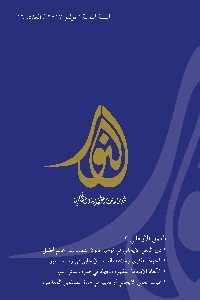Abstract
The thesis at hand presents a critical analysis of the writings of the
contemporary, 20th century Muslim scholar, theologian and exegete Said
Nursi (1876-1960) of Turkey. Special reference is given in this thesis to his
views and writings on theodicy and the problem of evil from the perspective
of Islām.
This thesis is an attempt to discover the Qur'anic narrative of evil (sharr)
as deviating from the human perception of evil in this world; to analyze
Nursi's magnum opus on the definition of sharr and its correspondence to the
Qur'anic definition thereof; and to challenge Nursi's works with the thoughts
and views of his predecessors and contemporaries in order to try to filter new
insights and offer possible solutions to theodicy and the problem of evil
through Nursi's Risale-i Nur Collection.
The methodology that has been used in this study follows Izutsu's
example as seen in Ethico-Religious Concepts of the Qur'an and God and
Man in the Koran: namely to conduct an inductive investigation of the term
sharr in the Qur'ān and Nursi's Risale-i Nur Collection.
There are several issues that can be considered to be the main findings of
this study: 1) human perception of evil in this world to a great extent at odds
with the Qur'anic definition of sharr, 2) new theological concept called
'negative worship', establishing a relation between sharr and worship, 3)
relationship between theodicy and the Divine Names of God, 4) link
between the human 'I' (ana) and, if misused, its encouragement for all kinds
of ashrār (pl. sharr), 5) original interpretation to the Qur'anic verse [2:30], 6)
sharr, ana and free choice (juz'ī ikhtiyār) consist of the same nature and
finally 7) suffering of on-human beings part of the field of theodicy.
Keywords
References
- قراءة في كتاب اسم الكتاب: تعامل مسلم مع الشر: سعيد النورسي على ثيوديسيا.
Abstract
References
- قراءة في كتاب اسم الكتاب: تعامل مسلم مع الشر: سعيد النورسي على ثيوديسيا.
Abstract
References
- قراءة في كتاب اسم الكتاب: تعامل مسلم مع الشر: سعيد النورسي على ثيوديسيا.
Details
| Journal Section | ARTICLES |
|---|---|
| Authors | |
| Publication Date | June 1, 2017 |
| Published in Issue | Year 2017 Issue: 16 |


